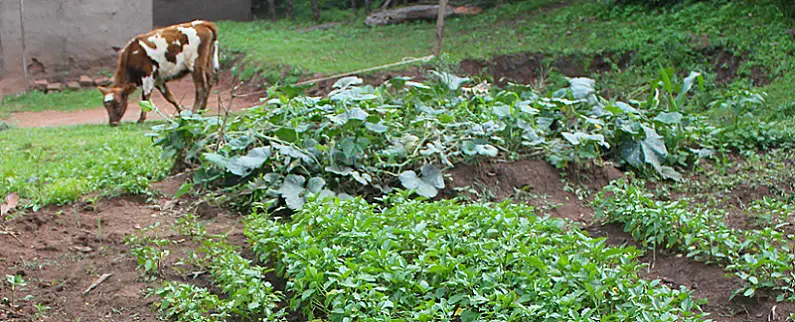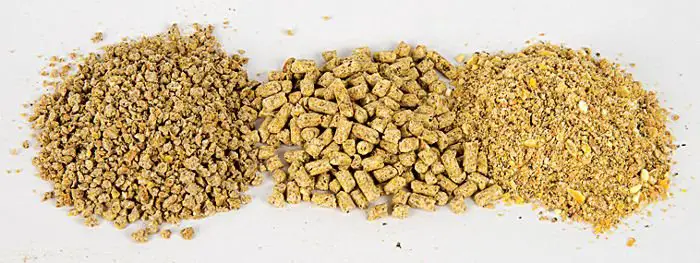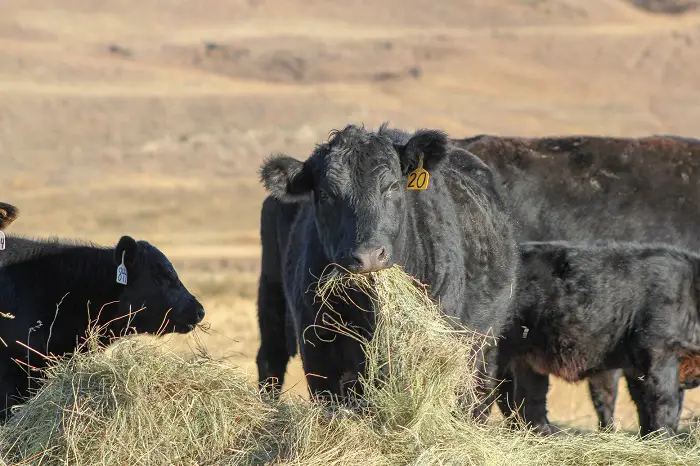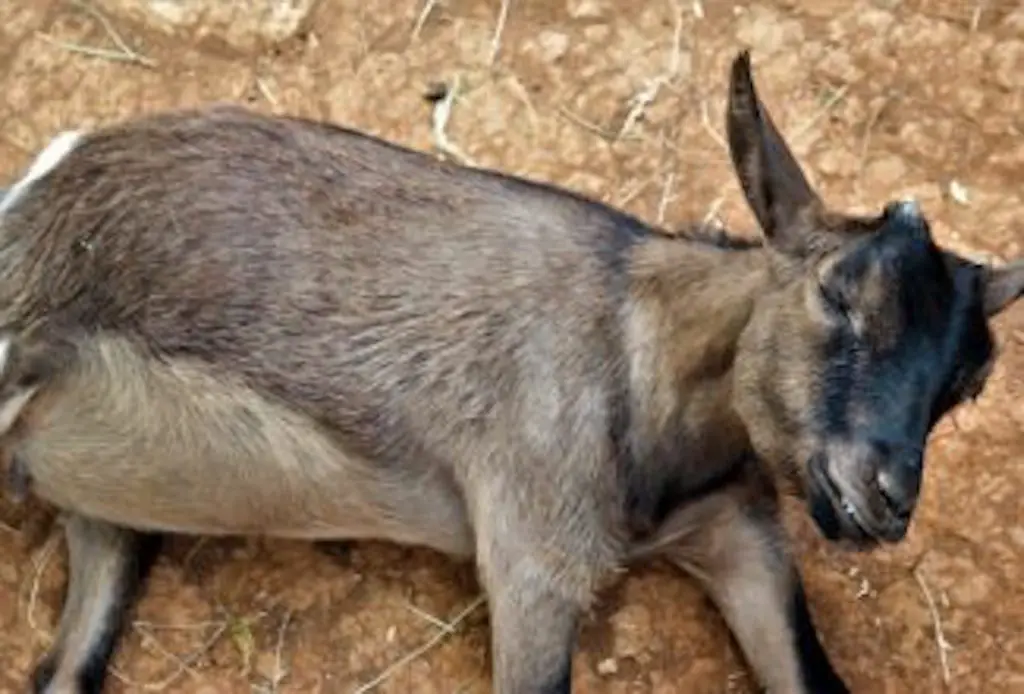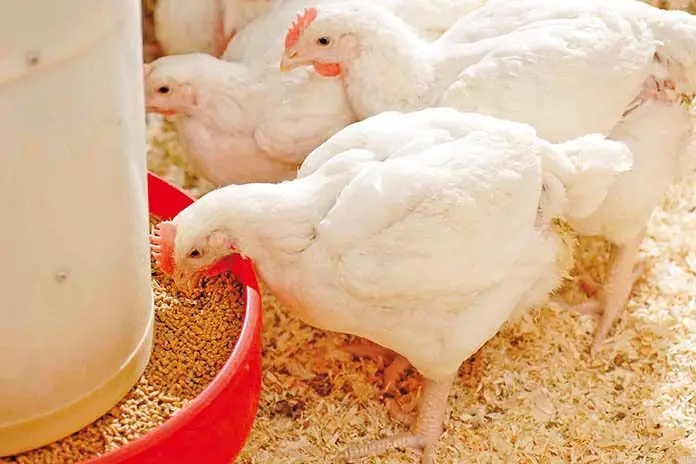With the growing demand for livestock feed, prices seem to be sky rocketing each time which is why farmers are now resorting to finding alternative foods for their cows. In this article we are going to be discussing whether cows can eat vegetables and if they are a cheaper option as compared to livestock feed.
Contents
Can Cows Eat Vegetables
Cows can eat certain vegetables and not all vegetables. This is because there are certain vegetables that contain compounds that are toxic to cows. Cows can eat vegetables like cabbage, broccoli, cauliflower, cucumber, kale, carrots and ripe tomatoes etc. These vegetables contain vitamins and minerals that are essential to a cow’s body. It is worth noting that although a cow can eat vegetables, these cannot be used to supplement a cow’s entire diet. This is because vegetables do not contain enough vitamins and minerals to meet the dietary needs of a cow. Therefore, if you feed your cow vegetables only there is a chance that it will suffer from malnutrition or bloating. Vegetables should only be given to cows as a snack and not as a feed supplement.
Vegetables That Cows Can Eat
Cauliflower
Cows can eat vegetables like cauliflower because they can easily be digested by the rumen. Cauliflower has a fiber content which helps to improve a cow’s digestive system. Cauliflower also contains vitamins like vitamin C, K and A which help to boost a cow’s immune system. When giving cows cauliflower you should always slice it up so that cows do not choke on it.
Cabbage
Cows can also eat vegetables like cabbages. This is because they contain vitamin B6, B2 and K which are needed by the cow’s body. Cabbages contain a high moisture content and should be given to cows in moderate quantities because they can lead to diarrhea and other digestive problems in cows.
Potatoes
Cows can eat potatoes because they can be digested by the cow’s stomach when consumed in moderate amounts. Potatoes contain antioxidants that help to boost the cow’s immune system and they also contain starch that can improve the digestive system of a cow. It’s important that you give cows a limited amount of potatoes as they have the ability of causing bloat in cows.
Broccoli
Another vegetable that cows can eat is broccoli. This vegetable is filled with vitamin C which is known to help the cow’s body resist and fight certain diseases. Cows that have a high level of vitamin C in their body are not susceptible to certain diseases and if they do contract any diseases they have a higher chance of recovering.
Tomatoes
Tomatoes are another vegetable that cows can eat and they are rich in vitamin A. This vitamin helps to improve a cow’s eyesight and it also provides the cow with energy. When giving tomatoes to cows make sure that they are ripe. This is because unripe tomatoes contain a compound known as tomatine which is highly toxic to cows.
Vegetables That Cows Cannot Eat
Vegetables that contain tomatine or solanine should never be consumed by cows as they are highly toxic. Below is a list of some vegetables that contain these compounds.
- Bell peppers
- Unripe tomatoes
- Onions
- Egg plant
- Potatoes with a greenish color
Can Cows Eat Carrots?
Yes cows can eat carrots because they contain vitamins and minerals that are essential to a cow’s body. Some of the vitamins found in carrots include vitamin A, C and D. These vitamins help to boost the immune system of a cow whilst also helping with bone formation and eyesight of cattle. Carrots are also rich in fiber which is needed by cows during digestion. Carrots should be offered to cows as snacks and not as a feed supplement.
Can Cows Eat Raw Vegetables?
Yes cows can eat certain raw vegetables. Some of the favorite raw vegetables that cows like eating are cabbages, kale, cucumber, broccoli, cauliflower, ripe tomatoes and carrots.
Can Cows Eat Zucchini?
Yes cows can eat zucchini this is because it can be digested by the rumen. Zucchini is rich in fiber, vitamin C, A and K which are essential for the overall development and health of a cow. When giving cows zucchini it’s important that you wash it and then cut it into small pieces. Failure to do so will result in the cow choking over the zucchini. It’s also important to know that zucchini alone cannot meet the dietary needs of a cow and thus, it should never be used as a substitute for livestock feed.
Can Cows Eat Cucumbers?
Cows can eat cucumbers because they are a good source of roughage and can easily be digested by the cow. Cucumbers are good for cows because they contain a lot of water which can help the cow to stay hydrated. Cows that eat cucumbers are likely to gain vitamin A, C and K. When giving cows cucumbers it’s important that you give the cows a moderate amount of cucumbers as they have the potential of causing digestive problems when consumed in excess.
Are Apples Toxic To Cows?
Apples are not toxic to cows. This is because they can be digested by the rumen and they contain fiber. Cows should be given apples as snacks this is because when they are consumed in excess they can cause stomach problems or digestive problems in cows.
Are Tomatoes Toxic To Cows?
Unripe tomatoes are toxic to cows. This is because they contain a compound known as tomatine which is highly toxic. When offering cows tomatoes make sure that they are ripe and also remove the stems as they contain tomatine as well.
Should Cows Eat Potatoes?
Cows should eat potatoes in moderate amounts but avoid giving cows potatoes that have a greenish color. This is because they are toxic to cows.
Conclusion
Cows can eat a variety of certain vegetables however, it’s not advisable to substitute livestock feed with vegetables. This is because vegetables do not contain enough vitamins and minerals to meet the energy requirements of a cow.
